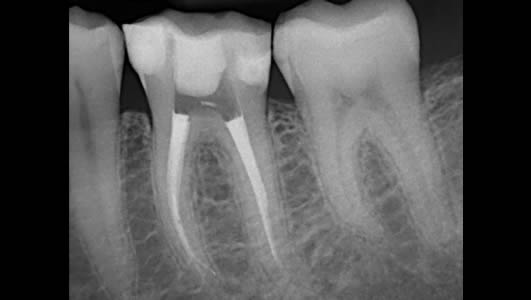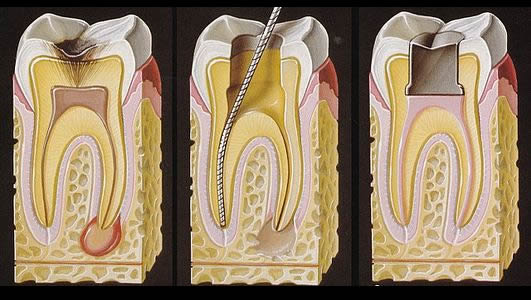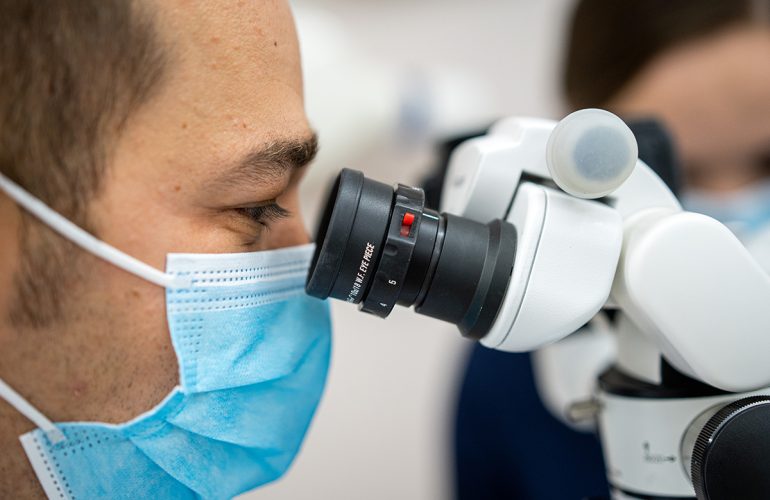Eminaj Dental Clinic cures position anomalies to promote the constitution and development of teeth and jaw bones, thanks to the application of modern dental appliances, inside the mouth and absolutely not visible from the outside.
What is Endodontics?
Endodontics deals with treating the dental pulp and the tissues surrounding the tooth. This treatment is also known as root canal treatment. Endodontic treatment or root canal treatment is an intervention that becomes necessary when the pulp is inflamed for damage caused by trauma (severe or lighter but repeated) that has caused a fracture or chipping or deep crack or for damage from deep caries, from the outcome of interventions on the tooth.
The dental pulp, popularly known as the tooth nerve, is actually a highly specialized tissue made up of nerve endings, veins, arteries, and connective cells. This tissue, in the age of development, has the function of forming the calcified supporting structure of the tooth. The pulp by now thinned, with residual functions of sensitivity to cold and hydration of the dentin, in the adult when growth is complete, remains confined in the pulp chamber and in root canals. Endodontic treatment requires one or two sessions, depending on the tooth and the degree of contamination of the pulp. Thanks to the aid of anesthesia, endodontic therapy is painless.
How is a root canal treatment?
When is root canal therapy required?
There are various symptoms that make you understand when you need endodontics:
- formation of an abscess at the root of prolonged dentesensitivity to hot and cold substances pain,
- continuous or during mastication of the tooth When the dental pulp is infected,
- the bacteria multiply in the chamber pulp and together with the dying pulp,
- they create an infection or an abscess, which is a bag full of pus that is formed at the root of the tooth. If the infection progresses,
- pain and swelling can extend to other parts of the face.
Once the infection has been eliminated, the restored tooth can perform the masticatory function normally thanks to the canal therapy. It is important, however, to carefully treat oral hygiene after endodontic treatment.
Some work carried out at our clinic






